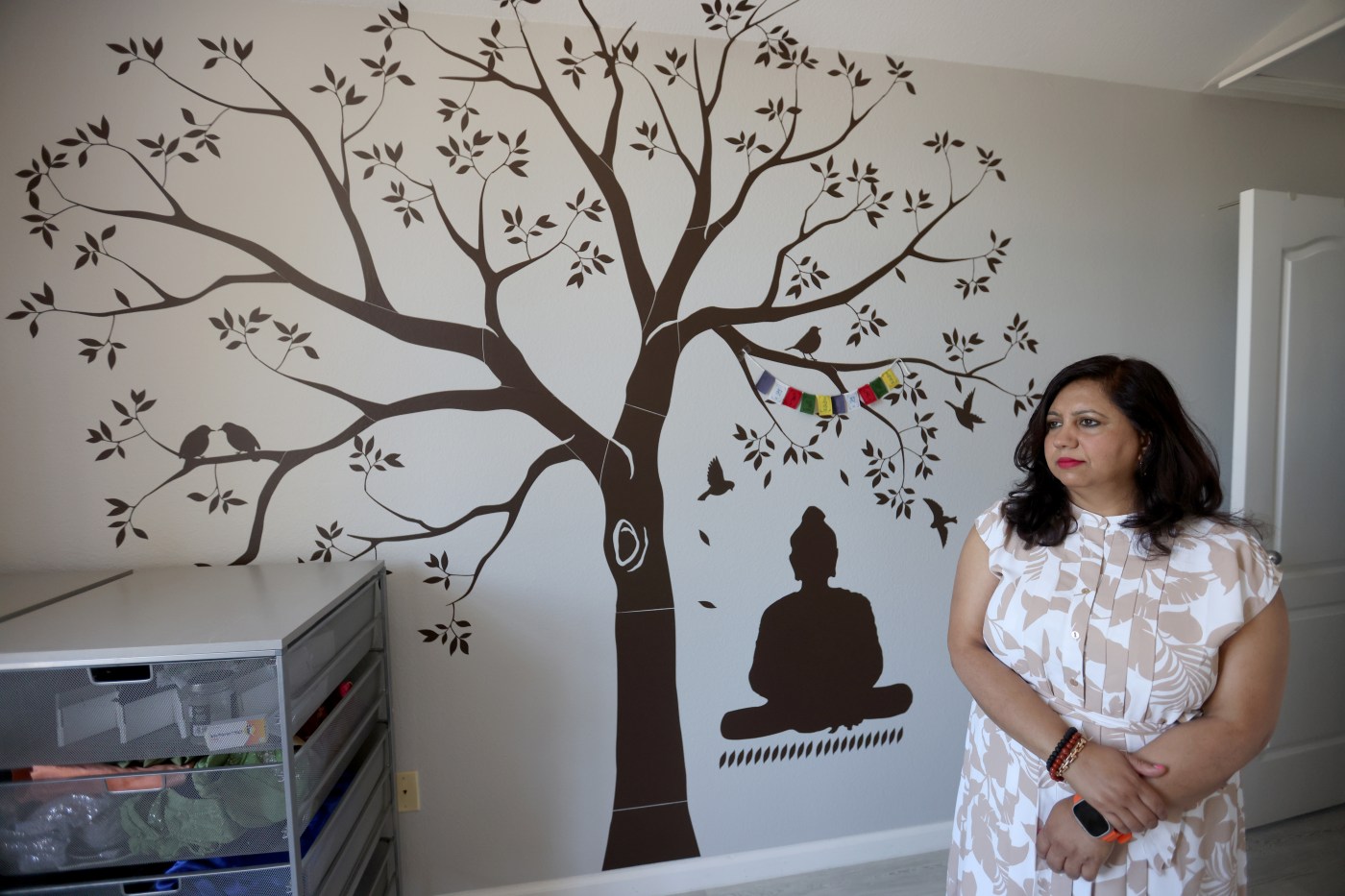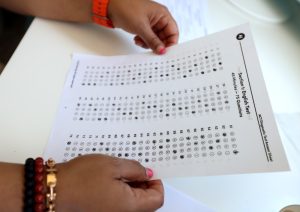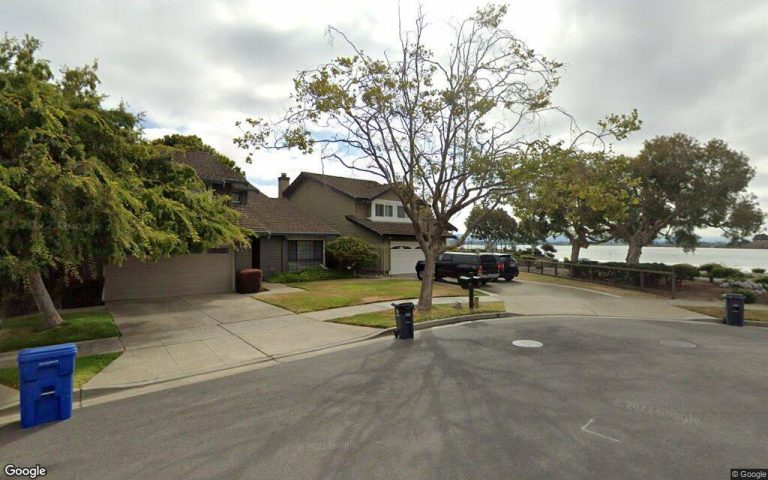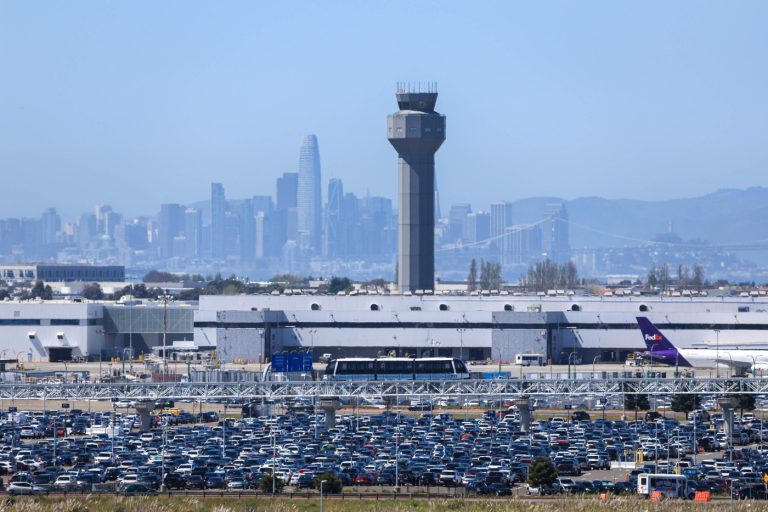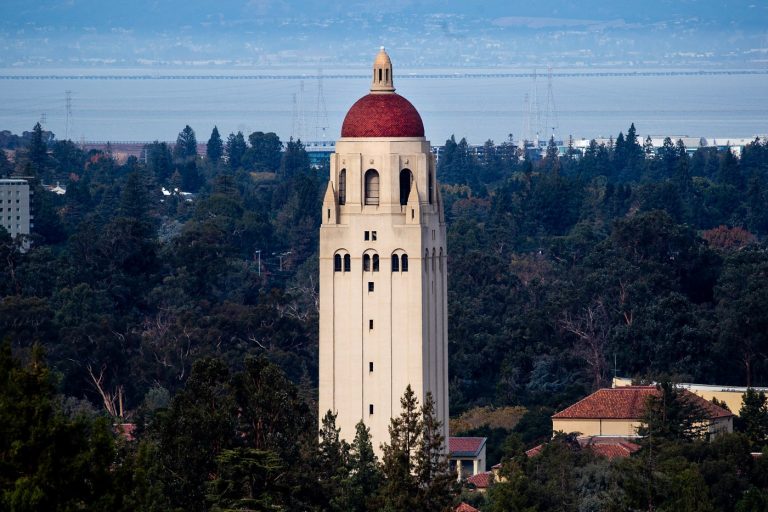When Priti Sharma logged onto the College Board website to book a fall SAT test for her son, Yuvraj, a rising junior at the Khan Lab School in Mountain View, she didn’t expect to have much trouble finding a spot since she was booking months in advance.
As a single mom with a full-time job, Sharma didn’t want to travel far for the test. But her search quickly revealed she might have to — there were no testing centers available within 100 miles of her hometown of Santa Clara for the October and November SATs or within 50 miles for the December test.
“I would prefer that it’s in the nearby vicinity so that we minimize our driving time and he’s able to calmly go and take the test. I don’t want to add additional stress on top of taking the test,” Sharma said.
But as elite schools like Stanford, Caltech, Harvard and Yale reverse their test-optional policies, Bay Area students attempting to take the SAT before college applications are due this winter might have to travel several hours or even out of state to nab a coveted spot — an especially challenging situation for lower-income students.
A recent search by a reporter of SAT testing centers through the College Board found disheartening results. Seats for the August, October and November testing dates were fully booked within 100 miles of San Jose and San Francisco, while just a handful of seats remained for the December and March exams — most of which were in locations several hours away, in cities like Sacramento, Sonora and Folsom.
Leslie Reckler, who sits on the West Contra Costa County Unified school board, ended up traveling to Reno, Nevada, so her daughter could take the exam last fall — the closest testing center she could find. Reckler said the experience “wasn’t ideal” as she had to take off work and the trip was expensive.
The College Board blamed the lack of availability on host schools unwilling to staff and run weekend test centers, but others pointed to low pay for proctors and schools ditching the testing requirement.
California universities’ switch to “test-blind” and test-optional admission policies, which began several years ago, has resulted in fewer test centers, despite stable demand from students and some schools reversing those policies, said Priscilla Rodriguez, the College Board’s senior vice president for college readiness assessments.
In California, there are now fewer than half as many SAT testing sites as there were before the pandemic, Rodriguez said.
It’s not just the SAT. Catherine Hofmann, the ACT’s vice president of state and federal programs, also said the limited number of test centers in California is unique to the state and concentrated in the Bay Area.
“This isn’t replicated across the nation,” Hofmann said.
Rodriguez said the College Board is addressing capacity issues by opening test centers in nontraditional venues such as hotels and convention centers. The College Board said those partnerships added over 9,000 seats in the Bay Area for the May and June tests.
But the test’s new digital format relies on strong Wi-Fi networks able to support hundreds of individual connections — a feature of many school campuses but not necessarily hotels.
Just last month, parents and students were outraged when the Wi-Fi at the Marriott Hotel in downtown Oakland began to sputter and freeze just as 1,400 students were readying to take the exam. The resulting hours of chaos led to the test’s cancellation — an ordeal for which the College Board apologized — and the botched exam was ultimately rescheduled for later that month in San Francisco at a different location.
The mishap happened after Oakland’s school district had stopped offering campuses as testing locations during the COVID-19 pandemic and never resumed the practice.
Some Bay Area districts — including Dublin Unified and San Jose Unified — participate in “SAT School Day,” a designated day where high school juniors and seniors can take the test during class time. Some districts even offer it at no-cost.
But the College Board said most California schools do not participate in the program, which accounts for the majority of the tests administered nationwide.
Hofmann said the ACT faces the same problem. She said school day testing saw over 1.2 million students take the ACT last year, but only about 2,000 students — mostly from private schools — took the test in California.
Others have blamed the College Board for the lack of test centers and said the problem lies with the organization’s failure to pay test proctors adequate wages.
Lisa Madieros, a test scoring and scheduling coordinator at San Jose State University, said the university has offered the test to hundreds of students in the past but stopped in 2023.
“No one wanted to work the SATs because they paid less than minimum wage,” Madieros said. “The College Board uses our facilities and pays our proctors less than minimum wage and it’s just not profitable for San Jose State.”
The College Board said starting in August, the standard proctor rate will increase to $135 for the slightly-over-two-hour exam. The organization said locations are not reimbursed for serving as weekend test centers but do receive a stipend for supplies.
Aaron Andrikopoulous, co-founder of AJ Tutoring, a Bay Area test prep and tutoring service, said limited availability means students may only have one chance to take the exam and get the score they need.
“It used to be a very common practice to take the test by the end of your junior year and then retake the exam your senior year,” Andrikopoulous said.
The ACT exam also faces limited availability, with the September and October exams almost completely booked for the Bay Area.
Related Articles
Gov. Newsom signs first-in-nation bill banning schools’ transgender notification policies
Check this out: Bay Area libraries offer unique services, tools, items to take home
Literary art: 5 amazing art installations to see at Bay Area libraries in San Jose, Lafayette and more
Campbell high school district students charged up about clean energy
Kneaded culinary academy cooks up solutions for struggling South Bay youth
“There are really two solutions,” Hofmann said. “That is opening up more test sites, and we need partners to work with us on that … and then the other way is through schools and districts to fund the ACT during the school day.”
Rodriguez said the College Board will add an additional 2,500 seats to Bay Area testing centers for the upcoming August exam, and tens of thousands of additional seats in California for the rest of the year’s testing dates at nontraditional sites that have already been vetted for a stable Wi-Fi connection.
“It’s a complex solution,” Rodriguez said, “but it’s one that we’re committed to and that we feel is the right and necessary thing to do to make sure that any student who wants the opportunity in California is able to get it.”
